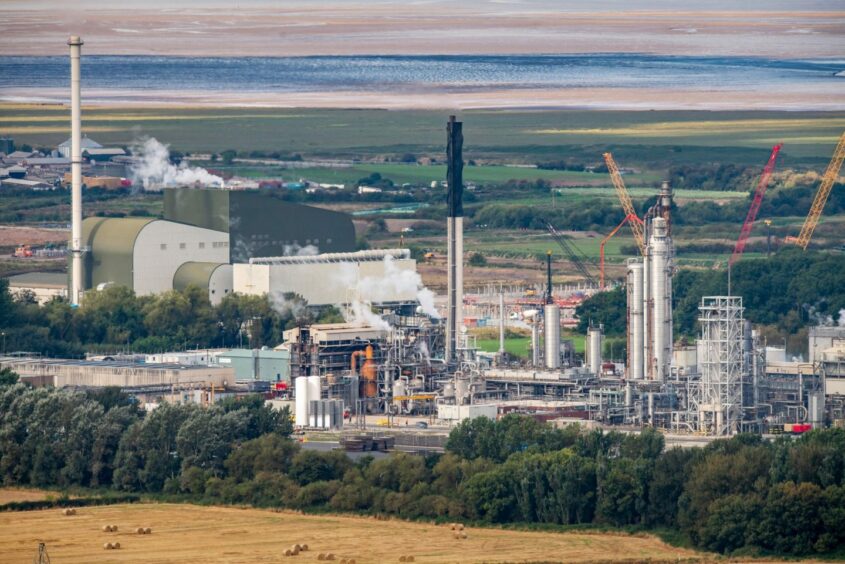
UK ministers were warned that energy-intensive industries were at risk of work slowdowns and site closures due to soaring energy prices even before Russia’s invasion of Ukraine exacerbated the crisis.
The dire outlook was forecast by “Project Shine,” which was commissioned by the Treasury last year because of fears about the impact of rising energy prices as the world emerged from the pandemic. The briefings were prepared by officials and industry specialists at PwC and were first delivered to ministers in November 2021, according to two people familiar with the matter.
The briefings raise questions over Boris Johnson’s government approach to the problems facing British industry, which unlike households is not protected by a price cap on energy prices. That has left heavy electricity users — along with high-street shops, restaurants and offices — facing the full force of surges in wholesale energy markets.
Project Shine found that industries including chemical and fertilizer manufacturers were especially at risk. Bureaucrats drew up plans to extend a subsidy program, with one proposal to add a levy to household energy bills and another funded by taxation, the people said.
But in another sign of inactivity since Johnson decided to step down, one of the people said it will be up to his successor, either Liz Truss or Rishi Sunak, to make a decision when one of them takes office on Sept. 6.
Consultation
In the meantime, the government this month announced a consultation on other potential ways to reduce electricity bills for industries.
There are also mounting concerns about gas supplies, with National Grid Plc confirming on Tuesday that an annual exercise to prepare industry for any potential shortage will be extended to four days from two over September and October.
Asked about the price warnings last year, a spokesperson defended the government’s response, pointing to the £145 million ($171 million) of extra support for energy-intensive industries in April 2022. That intervention came after Russia’s war in Ukraine caused prices to soar even further.
“Ministers and officials continue to engage constructively and regularly with industry and our priority is to ensure costs are managed and supplies of energy are maintained,” the spokesperson said in an email.
A PwC spokesperson declined to comment on the briefings.
While work is ongoing to find a mechanism to help at-risk firms highlighted by Project Shine, it has taken many months for officials to work through state aid rules, one of the people said. During that time, the forecast for energy-intensive industries worsened.
Energy Costs
The manufacture of fertilizers was of particular concern due to a combination of high prices and suppressed demand. Ministers were told that some chemical and fertilizer companies faced site closures or slowdowns without state intervention or a change in circumstances.
For some of these manufacturers, energy bills consume up to 12% of their costs. Rising fertilizer prices could also lead to tighter margins for farmers and higher food prices.
Cold storage is another area of significant risk due to the high electricity costs of refrigeration, post-pandemic labor shortages and higher demand for storage within Britain following Brexit, ministers were told.
Frozen and chilled storage, a crucial component of food supply chains which supermarkets rely on to transport perishable goods, were seen as being at most risk. Electricity represents up to 20% of the cost for some of those firms.
Food Supply
The briefings suggested it’s likely that food supply chains that rely on cold storage would remain operational, but that costs would be passed on to consumers. That, the ministers were told, could lead to higher food prices — an outcome that pushed up inflation most of this year.
Glass manufacturing is also heavily exposed due to the energy required to heat blast furnaces, which are also expensive to turn off and on. Makers of cement, concrete, plaster and lime are likely to face margin pressures which will be passed on to consumers.
“Households, businesses and industry can be confident they will get the electricity and gas they need over the winter,” the prime minister’s spokesperson, Camilla Marshall, told reporters Monday when asked about the energy crisis facing businesses. She reiterated, however, that Johnson’s administration would be making no announcement on additional support.
That all leaves industry executives waiting anxiously. The cost of wholesale UK gas saw a major rally on Monday, driven by new fears about Russia cutting supply further through the Nord Stream pipeline. Gas prices jumped 23% to 568 pence per therm, more than 10 times the average over the past four years.
At these prices, it’s uneconomical for many heavy users to bother manufacturing anything. Smelters in the rest of Europe have already been halted because of high energy prices and one has been shut for good.
Recommended for you
